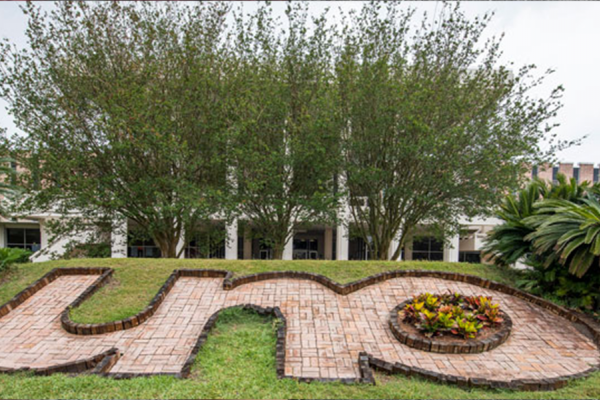The University of New Orleans Center for Hazards Assessment, Response and Technology (UNO-CHART) and a coalition of local partners will receive two grants, totaling $1 million, from the Rockefeller Foundation to create a series of roundtable discussions designed to build a portfolio of best practices that address global climate change. The grants will be distributed between UNO-CHART and the Foundation for Louisiana with Concordia LLC providing assistance in developing and executing the three-part series.
The Global Transformation Roundtable Series will bring together international experts, state leaders and community organizers to share strategies and lay a blueprint to combat growing threats from climate induced coastal erosion, rising sea levels and extreme flooding.
"Louisiana is experiencing coastal land loss at a rate higher than anywhere else in the United States," Pat Forbes, executive director of the Office of Community Development, said. "The State's Coastal Master Plan includes numerous projects, both large and small, that will help combat that loss. Nevertheless, the coast will continue to change and those changes will impact coastal communities. Our coastal communities are going to have to adapt to these many changes over the coming years and decades, and the LA SAFE community-driven planning process is designed to facilitate this effort."
"We hope to build upon LA SAFE's tremendous success in engaging local residents living in coastal communities through meaningful design-based, problem-solving activities that address the challenges and opportunities of increased flooding in low, moderate and high risk areas," Liz Williams Russell, director of FFL's Coastal Community Resilience Program, said. "The goal of the Global Transformation Roundtable Series is to scale this collaborative approach and inform other related efforts across the country and around the world."
"We know we are going to face a higher degree of flood risk and land loss over the decades and generations yet to come," Monica Farris, director of UNO-CHART, said. "Every person and every community needs to have a basic literacy on this challenge and its solutions, and that's what this three-part series aims to provide."
All events will be facilitated by Concordia LLC, a longtime partner in design, planning, and community engagement throughout Louisiana. The first roundtable session is March 14-15 in Buras, Louisiana, a small community of vibrant culture about an hour south of New Orleans and that now stands on the frontlines of coastal change.
"The discussion will feature speakers from Da Nang, Vietnam; Santa Fe, Argentina; and Vejle, Denmark," Mathew Sanders, OCD Resilience Policy and Program Administrator, said. "These international experts will present case studies on new solutions they developed for their own communities, which are at significant risk. We look forward to sharing our LA SAFE experiences with these experts and anticipate an exciting exchange of groundbreaking ideas."
The second roundtable will take place in Bellagio, Italy in the fall of 2018, and the details for the third and final session are still being determined.
"The growing threats that coastal communities are facing must not be taken lightly. Flooding, powerful natural disasters and rising sea levels due to climate change pose significant threats worldwide, in particular for those on our coasts," Samuel Carter, director of the Resilience Accelerator at 100 Resilient Cities, said. "Building on the success of what the dedicated individuals in Louisiana have already accomplished and bringing together additional communities from around the world to find solutions to these shared challenges illustrates what we can achieve when we unite and flex our ability to problem solve collaboratively. Developing effective responses to these threats will require global solutions and pooled strategies, and that begins with programs like this one."
Louisiana was one of 13 states and municipalities awarded more than $1 billion for resilience projects in HUD's National Disaster Resilience Competition. The competition was open to communities struck by a presidentially declared major disaster in 2011-2014. The LA SAFE project was one of Louisiana's winning entries.





